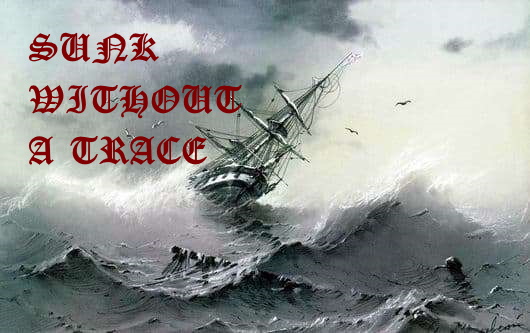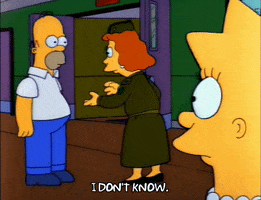
As we end each year from now on, I’m going to take a look back, not only at the music of that year but also at the events, try to get a sense for what was going on.
Moving Gelatine Plates may not have released their album until the next year, despite what Wiki says, but plates were certainly moving as 1970 arrived on the horizon, heralding the beginning of a new decade. Tectonic plates, to be exact, resulting in a devastating earthquake that claimed over 10,000 lives and injured twice as many again in China, while on the far side of the world, Pan American Airlines (Pan-Am) flew their first scheduled Jumbo jet flight from JFK to London Heathrow. Student riots against the rule of Philippines president Ferdinand Marcos would not remove the dictator for another sixteen years, and, as noted, disco began its slow takeover of the charts, with Michael Jackson hitting number one with “I Want You Back”. Japan, somewhat behind the curve, launched its first satellite into space, and Black Sabbath invented heavy metal as their eponymous debut album hit the shelves and blew everyone away.
The last gasps of the Summer of Love were stilled and the respirator removed as an accusation that “drugged-out hippies” had killed the family of Jeffrey R. McDonald in Carolina turned out to be a ruse to cover his own guilt for committing the crime, while 56 nations signed on to the Nuclear Non-Proliferation Treaty, in an effort to avoid our blowing the planet up, and for the first time since the country was divided along lines of politics and ideology, the two leaders of East and West Germany met. Ireland won the Eurovision for the first time ever when Dana came first with “All Kinds of Everything”, but we don’t need to dwell on that, and Paul McCartney officially announced his split with The Beatles. Apollo 13 headed to the moon, President Richard Nixon authorised the invasion of Cambodia as he expanded the Vietnam War, giving rise to protests which culminated in the tragic deaths of four students at Kent State University, and back home, the arms crisis exploded (sorry) in Ireland as members of the government of the Republic were accused of selling arms to the IRA in Ulster.
The Beatles announced the end of an era as they released their final album, Let it Be, and protests continued across the US against both the Vietnam War and the Kent State shootings, leading perhaps inevitably to more scuffles with the police and the deaths of two more students, this time in Jackson, Mississippi, while another severe earthquake, this time in Peru, made the Chinese one at the beginning of the year look like a mere tremor, as it killed over 70,000 and injured almost as many. In Mexico, the ninth World Cup kicked off, oil was discovered in the North Sea off the Norwegian coast, assuring Norway’s economic future for decades, and in England, six years of Labour government came to an end as Harold Wilson was replaced by the Tories' Edward Heath, signalling a shift to the right in British politics. One of worryingly many crashes by the British De Havilland Comet took the lives of all on board - 112 passengers and crew - as the aircraft plunged into the side of a mountain near Barcelona, two days later another aircrash as an Air Canada DC 8 impacted at Pearson Airport, killing all 109 passengers.
Protests about the war grew violent(er) as Sterling Hall of the University of Wisconsin-Madison was bombed, women marched for equal rights and the Isle of Wight Festival took place, featuring such stars as Hendrix, The Who and The Doors, as well as prog acts such as The Moody Blues, Jethro Tull and ELP. The Jordanian Civil War began, with an attempt to assassinate King Hussein, and in a decade which would see multiple hijackings, four aircraft were taken over by the Popular Front for the Liberation of Palestine, taken to the desert and eventually remotely detonated, thankfully without any loss of life. Sentiment against the Vietnam War reached fever pitch as celebrities such as actors Donald Sutherland and Jane Fonda, as well as future presidential hopeful John Kerry attend a huge antiwar rally in Valley Forge, Pennsylvania, and the King hit the road for the first time since 1958, drawing huge crowds. Nine days later another legend, Jimi Hendrix, was gone too soon, dying at the age of 27. Janis Joplin would die the next month, at the same age.
The first Glastonbury Festival was held, while in Egypt President Nasser’s death left Anwar Sadat in charge, though not for long. Anger and frustration over both the continued dragging on of a war few Americans wanted, and the brutal response to protests against it swept Democrats into the House and Senate, retaining control of the one and gaining control of the other, and two former presidents were elected (Carter) and re-elected (Reagan) governors of their states. Both the abovementioned earthquakes seemed tiny compared to the cyclone that swept through Bangladesh, killing over half a million people, and making it the deadliest storm in history, Eric Clapton released “Layla” under the pseudonym Derek and the Dominoes, and the Vietnam War began to wind down to an inevitable, eventual US withdrawal.
So that was the history of 1970, or a small slice of it. What about progressive rock? Well, as I said in the introduction to this chapter, the big bands would not really begin to make their mark for another two or three years, and while there were some decent albums released in 1970 it would be hard to point to a total classic. Bands formed this year include the original lineup of Curved Air, who also released their debut album,
Air Conditioning, ELO (Electric Light Orchestra), whose debut would not see the light of release until the next year, ELP, who would meld the world of classical and rock better than perhaps any band before or since, and whose antics would also end up being one of the final nails in the coffin of prog rock, gleefully hammered in near the end of the decade. They too gave the world their debut this year. Gentle Giant, who would only achieve retrospective acclaim and acknowledgement, formed this year and also released their self-titled debut album, while in America Kansas, formed this year, would leave the world waiting another four before they dropped their first album.
In terms of albums released by bands or artists who had already been around before 1970, some of the big ones were Pink Floyd’s fifth proper album,
Atom Heart Mother, which gave the band their first ever number one album, and to a smaller extent Genesis, who changed their format drastically and brought forth the classic
Trespass. There were also debut albums from Egg and Barclay James Harvest, while Procol Harum released their fourth and Soft Machine their third, Yes underwhelmed with
Time and a Word, as did Supertramp with their eponymous debut but Focus made a splash with theirs, even gaining a hit single. Both King Crimson and Van der Graaf Generator, almost veterans of the nascent prog movement at this stage, released two albums, Frankie Z had three, while Magma invented a whole new language to go with their whole new sub-genre of prog. I really wish they hadn’t, but they did, and there’s no getting away from that.
Falling fast and hard from grace, Syd went it alone and released the only two solo albums he ever recorded in this one year, neither of which made the slightest ripple, unlike the band he founded, Caravan had their second album out (but it was their third, released the following year, that would forever establish their legend and place in prog rock history) and krautrock began to go from strength to strength with Amon Duul II.
As mentioned, this year also saw the end of the legendary Beatles, as they called it a day, The Nice as they split to allow Emerson to go on to greater things, and with the breakup of Organisation (who?) we would later see a new German powerhouse emerge (though nothing to do with prog really) in Kraftwerk.






:format(jpeg):mode_rgb():quality(90)/discogs-images/R-3930467-1419039386-5920.jpeg.jpg)



:format(jpeg):mode_rgb():quality(90)/discogs-images/R-2658115-1419696310-4320.jpeg.jpg)

:format(jpeg):mode_rgb():quality(90)/discogs-images/R-3207151-1320504826.jpeg.jpg)

:format(jpeg):mode_rgb():quality(40)/discogs-images/R-1593935-1420456493-4280.jpeg.jpg)
:format(jpeg):mode_rgb():quality(90)/discogs-images/R-2832806-1463237581-1223.jpeg.jpg)
:format(jpeg):mode_rgb():quality(90)/discogs-images/R-6588448-1422625110-9344.jpeg.jpg)


:format(jpeg):mode_rgb():quality(90)/discogs-images/R-6433027-1419102793-1853.jpeg.jpg)

:format(jpeg):mode_rgb():quality(90)/discogs-images/R-765745-1567242075-7508.jpeg.jpg)


 Linear Mode
Linear Mode
